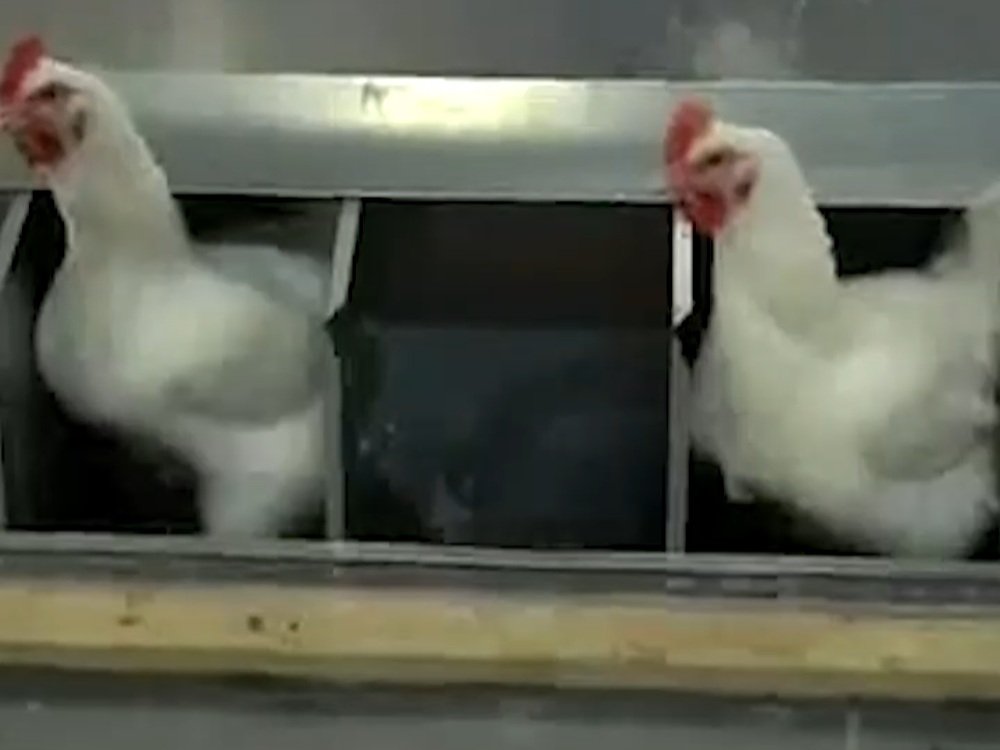The Motherhood We Ignore: The Exploitation of Mother Hens in the Egg Industry
Mother's Day is a time to celebrate the love, compassion, and sacrifice of mothers everywhere. A time to reflect on the role that they play in shaping our society and building a better future for all of us. We must remember, however, that not all mothers are treated with the love and respect they deserve.
According to United Nations Food and Agriculture Organization the vast majority of farmed animals, are female, and they are often subjected to unspeakable cruelty in the name of food. This includes cows used for dairy, pigs used for breeding, and of course, the layer hens used for their eggs. But it's not just the layer hens that suffer in the egg industry—it's also their mothers.
Egg industry hens are all descended from chickens in a 'parent flock' on a breeder farm. These eggs are produced solely for the purpose of producing fertilized eggs, which are sent to hatcheries. (Note: When urban farmers buy chicks, or fertilized eggs to hatch in homemade incubators, both the chicks and the eggs come from these tormented parent birds.)
"The young parent birds are confined in giant warehouses where they are bred relentlessly for the duration of their short lives. Unable to escape the shed or defend themselves against the roosters, the hens are overmounted, causing crushing injuries, broken bones, severe feather loss, painfully raw vents and distended bellies.
None of these hens will ever get to see any of her babies. Every single one of the 90 billion eggs produced annually in the US originates from a hen who has been denied the freedom to raise her young. Each year, at the end of their first laying cycle, the hens who survive the ordeal of forced insemination, are discarded and replaced with younger 'breeding stock'." (Source)
Inside a breeder farm. Watch the full video here.
The cruelties of the egg industry are not talked about in public beyond battery cages and cage-free campaigns, let alone the breeder farms, or hatcheries. Animal Liberation Victoria's Openrescue team was one of the few that went on an undercover investigation to report on the abuse and neglect of the chickens in a hatchery near Melbourne. They reported:
"We found each shed filled with exhausted, debeaked and debilitated hens suffering severe feather loss mixed together with young virile roosters.
There were no cages, all the birds were tightly packed together on metal flooring.
[...] they kill the older male birds at around 50 weeks of age and replace them with young roosters to further boost the economic productivity of the already exhausted hens."
Clip from an Australian-first investigation on a Specialised Breeders Australia (SBA) Hatchery near Bendigo, Victoria, one of the country's largest egg-layer hatcheries. (by Animal Liberation)
In Canada, the Code of Practice for the Care and Handling of Hatching Eggs, Breeders, Chickens and Turkeys sets standards for the care and handling of parent flocks. However, these standards fall far short of what any compassionate person would consider acceptable. For example, it also allows for the routine mutilation of birds' beaks, which can cause lifelong pain and suffering.
In the United States, the USDA's National Poultry Improvement Plan sets standards for the care and handling of parent flocks. However, these standards are voluntary and not enforceable by law. As a result, many parent flocks in the US are kept in appalling conditions, with birds suffering from diseases, injuries, and neglect.
Hens, like many other animals, have strong maternal instincts and are natural caregivers who will go to great lengths to protect and care for their offspring. However, in the egg industry, these instincts are ignored, and many female hens never get the chance to experience motherhood. This treatment of hens is not only cruel, but also perpetuates a cycle of exploitation and suffering in the egg industry. By consuming eggs from such systems, we contribute to a scheme that prioritizes profit over compassion and puts these sentient beings at risk.
But there are alternatives. By choosing plant-based options, we can help break this cycle of cruelty and support a more compassionate and just food system. As we celebrate Mother's Day, let's remember that all mothers deserve love, compassion, and respect—whether they are human or non-human animals. Let's work towards a future where all mothers, and all beings, can live free from harm and suffering.
Juliane Priesemeister, Executive Director
Juliane worked almost a decade for an international corporation as an information designer. Generating compelling visual stories was her daily deed, but as much as she enjoyed the creative work the big corporation environment left her hungry for substance and impact.
When she started her yoga journey a few years ago the “do no harm” philosophy pushed her to align work with her personal ethics and values. Today she uses her omnibus skill set, including marketing communications, economics, and graphic design, to reveal the truth about the egg industry to consumers.








